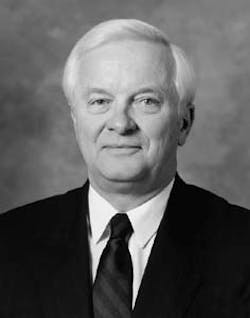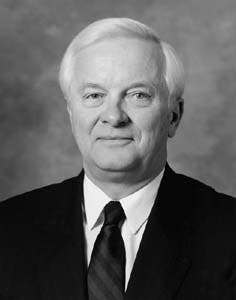Chevron's Matzke: Cost/benefit to play bigger role in industry
A more pronounced accent on cost/benefit analyses lies ahead for the petroleum industry.
That's because low oil prices, strong demand, and investor expectations will exert a stronger influence on decisions, says Richard H. Matzke, president of Chevron Overseas Petroleum Inc.
Matzke told an American Association of Petroleum Geologists meeting last week in Paris the industry needs its exploration sector to become fully integrated with today's cost/benefit realities. He also questioned whether the "traditional" exploration viewpoint should still be one of the top priorities driving today's oil industry.
"Historically," he said, "exploration risk has been viewed as something which shouldn't have to suffer the indignity of a cost/benefit analysis. And of course, all of us here owe our prosperity to discoveries made by yesterday's explorationists. But in hindsight, we've spent a lot of dollars chasing prospects that didn't pan out. We can't afford to do that any more.
"E&P used to stand just for exploration and production. Today it also has to stand for efficiency and profitability, economics and planning. We need to focus on the better barrel, not just the barrel. The superior target, not just a lot of targets. The new approach, not the one that always made sense in the past."
Opportunities, oil demand
Matzke said growing oil demand is creating a world of opportunity for oil companies. Big development projects and proposals are taking shape in dozens of countries."It's almost impossible to keep up with all the examples of real, long-term work the world's growing petroleum appetite is creating for our industry," he said.
World oil demand, about 67 million b/d at present, could grow as much as 30% by 2010 and natural gas demand by 50%. However, forecasts of long-term low oil prices mean "we can't make major investments on the assumption that oil prices will increase significantly," Matzke said.
"We know the trends of risk management, technological efficiency, and cost management are irreversible. We also know that investors, as well as governments in producing countries, expect reasonable returns on their investments in our industry. The accountability for these returns will remain the foremost challenge for managers at all levels.
"Investment dollars today must seek only the best ventures our best thinking and our best science can conceive. Low prices aren't just part of the business environment. They are the business environment."
The future
Matzke said oil companies can't expect to employ everyone tomorrow who was part of the industry yesterday. But without the contributions of geologists, "we know the industry would die."For the future, the industry will need professionals who understand financial limitations as well as performance requirements..."who want the company to choose the most profitable oil and gas investments regardless of whether they involve exploration." Copyright 1995 Oil & Gas Journal. All Rights Reserved.

